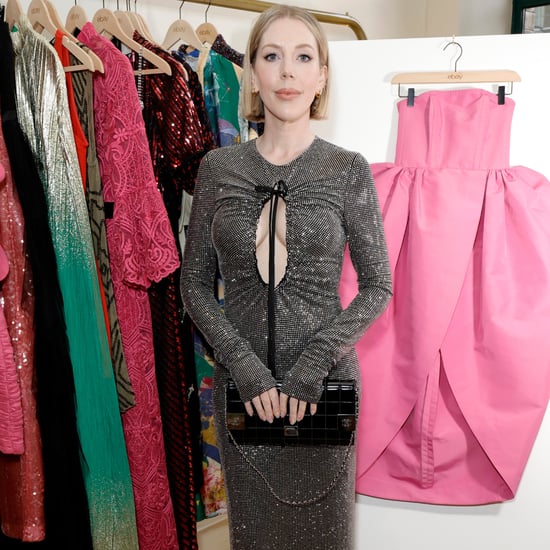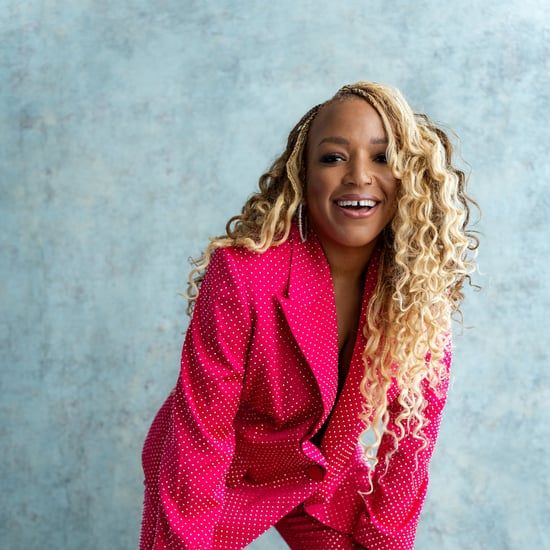Supporting Your Friend If You Disagree With Their Decisions
How To Support Your Friend When You Don't Agree With Their Relationship Decisions

The 27th series of "Made In Chelsea" started with a bang, and back we are, in the midst of Yas Zweegers and Sam Prince's rocky relationship. And of course all of their friends are involved.
At first, everything started surprisingly well, with the pair sharing they were even venturing into business together, but another hurdle presented itself for the couple in episode two, as their friend Rez Amiri-Garroussi revealed that Sam spent the night with another woman. Although initially shocked, Yas tells her pals Rez, Emily Blackwell and Ruby Adler that she's decided to stay with Sam, despite his wrongdoing, and asks for their support, which they struggle with.
These situations don't only crop up in the world of reality TV — I'm sure many of us haven't 100% agreed with our friends' relationship decisions. Maybe your best mate wants to get back with their toxic ex, or a friend wants to date someone you think is a wrong'un. Whether you've been there or not, you want to make sure your pal is aware that your intentions are in the right place, so we spoke to Louella Alderson, relationship expert and co-founder of So Syncd about how to navigate this situation in the best way possible, even if you don't agree with the decisions at play.
What Should You Do if You Don't Agree With Your Friend's Relationship Decisions?
Alderson admits that responding to a friend's relationship 'dilemma' can be tricky. "On the one hand, you want to support your friend and respect their choices. On the other hand, you care about their well-being and want to make sure they are making the right decisions for themselves in the long run. It's a careful balance that requires thought and consideration," she tells PS UK.
"The first step is to listen to your friend without judgement. Try to understand their perspective and why they have made the decision they have. This will give you insight into their thought process and help you approach the situation with empathy. It's important to remember that your friend is an individual who has the right to make their own decisions. Remember that even if you disagree with their choices, it's not your place to control or dictate what they do in their relationship."
Alderson adds: "After listening and understanding your friend's perspective, you can express your concerns in a calm and non-confrontational manner. Use 'I' statements instead of pointing fingers or attacking their partner. For example, say, 'I'm worried about how this relationship is affecting you,' instead of, 'Your partner is toxic for you.' Make sure your friend knows that your concerns come from a place of care and love. Let them know that you want the best for them, and that's why you are bringing up your concerns. You could say something like, 'I want you to know that I care deeply about you, and I want you to be happy.'"
Alderson's final point is to be there for your friend, to ensure your friendship isn't affected by your difference in opinion. "Regardless of whether your friend takes your advice or not, if you want your friendship to remain strong, it's important to be there for them. Let them know that you are available to listen and support them, no matter what."
Is It Best Not to Say Anything At All?
It's possible that you and your friend may not see eye to eye on their relationship decision. In this case, agreeing to disagree could be a better path for you and your friend to go down, but remember that different viewpoints are natural and don't necessarily mean there is something wrong with your friendship.
"Friendships require a balance of honesty and empathy," Alderson says. "We don't need to voice our opinions on every aspect of our friend's life, especially if it isn't a big deal. For example, if a friend buys a dress that you don't particularly like, it's okay to keep your opinion to yourself. However, if the decision could significantly impact their well-being, it's important to speak up. Essentially, the importance of the decision and the magnitude of the consequences can guide whether or not you share your opinions with your friend."
Could a Disagreement Over a Friend's Relationship Decision End the Friendship?
As Alderson explains, a difference in opinion shouldn't be the end of your friendship, and it's completely natural to disagree sometimes. However, in this situation, it's important that things are handled thoughtfully. Don't be patronising or condescending, just because you wouldn't make the same decision.
"If either party becomes defensive or unyielding, the friendship could suffer. This is why it's so important that your friend knows you are coming from a place of love and concern rather than judgement or control. If the situation is handled well, the friendship could even become stronger as a result of open and honest communication."
"One reason why a situation like disagreeing over a relationship may end a friendship is if it becomes apparent that your values and beliefs are vastly different from your friend's. If they are making decisions that go against your core values and you can't find it in yourself to continue supporting them, it may be best for both parties to re-evaluate the friendship," Alderson suggests.
Lauren Gordon is the editorial coordinator at PS UK, where she creates lifestyle and identity content. Lauren has a degree in journalism from University of the Arts London and previously worked as a showbiz and TV reporter at The Mirror US. Lauren specialises in pop culture, hair and beauty, focusing on trends, sharing in-depth tutorials, and highlighting hidden gems in the beauty industry.









